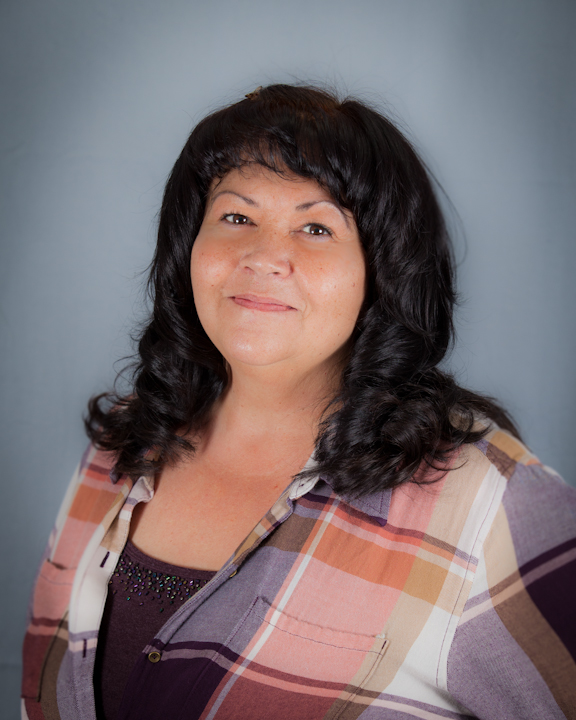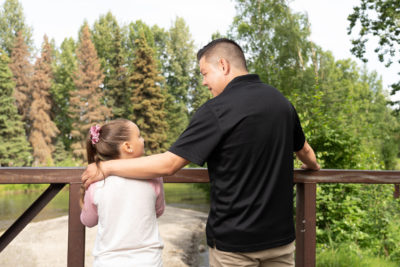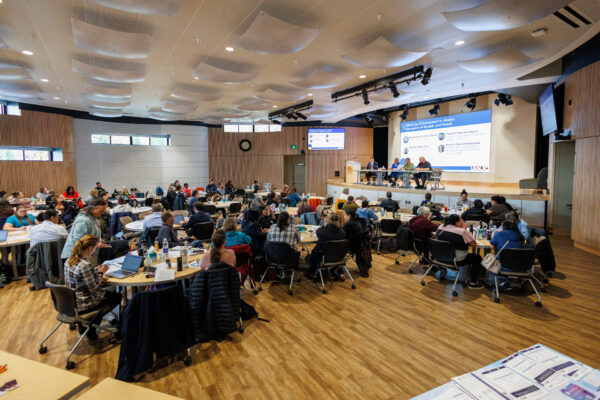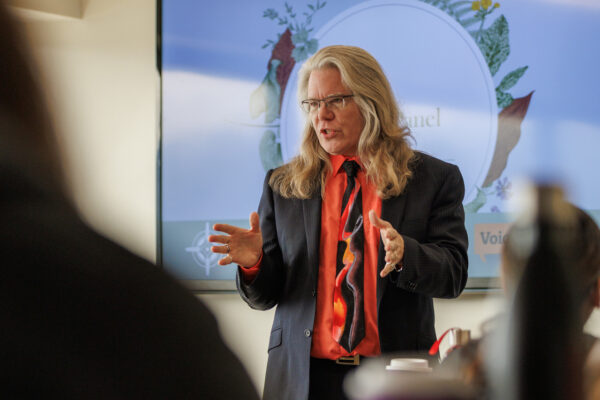Alaska Native Justice Center’s (ANJC) Tribal ICWA Representation Program provides representation, and more, for Tribes

Bettyann Steciw picked up the phone, not expecting much. She’d been through this before: As the Indian Child Welfare Act (ICWA) specialist for the Ninilchik Tribe, she had called plenty of lawyers, looking for answers to questions about the cases she was involved in.
“When I called attorneys for help in the past, I’d get put on hold, then they’d take my name, they’d think about it, and I’d never hear back,” Bettyann explained. “So when Chad actually called back within a couple days and had read up on the case and said he could help — I was dumbfounded!”
Chad Holt is an attorney with the Alaska Native Justice Center’s (ANJC) newest service: providing representation to Alaska Native Tribes, at their request, in ICWA cases brought in Anchorage courts. ANJC launched the services in February 2019; since then, ANJC’s Tribal ICWA Representation team has assisted six Tribes with a total of 39 cases.
A Significant Imbalance
 Statewide, over 50 percent of the children in out-of-home care are Native, even though they are only 19 percent of the state population. The imbalance is even greater in Anchorage, where only nine percent of children are Alaska Native or American Indian, but over 60 percent of children in out-of-home care are Native.
Statewide, over 50 percent of the children in out-of-home care are Native, even though they are only 19 percent of the state population. The imbalance is even greater in Anchorage, where only nine percent of children are Alaska Native or American Indian, but over 60 percent of children in out-of-home care are Native.
Compounding this imbalance, many Native families live in regions far from Anchorage — which means ICWA caseworkers involved in cases brought in Anchorage courts either face an expensive flight to the city, or must appear in court by phone. Most opt for the phone option.
Making things even more difficult, unlike the other parties involved in ICWA cases, which are appointed an attorney, Tribes are provided with no legal representation.
ANJC’s Tribal ICWA Representation Program is an effort to change this imbalance. The new program also aims to help Tribes to fully comply with ICWA requirements.
“ICWA was passed more than 40 years ago,” pointed out legal and policy director Alex Cleghorn, who served as a Special Assistant to the Attorney General on policies related to Alaska Native legal issues and rural justice before joining ANJC. “Given the severe disproportionality and challenges with ICWA compliance, ANJC’s efforts are necessary to achieve better outcomes for Native children and their families.”
Someone on Your Team
Like many case workers and ICWA specialists who work for a Tribe, Bettyann has ICWA training, but she’s not a lawyer. And because there aren’t many lawyers who specialize in ICWA cases, she often finds herself scouring the internet for answers to her legal questions.
 “But am I going to stand up in court and say, ‘Well, I found this on the internet’? You never know if what you found is a definitive answer,” Bettyann lamented.
“But am I going to stand up in court and say, ‘Well, I found this on the internet’? You never know if what you found is a definitive answer,” Bettyann lamented.
When she connected with Chad at ANJC, she discovered a go-to source for all her questions.
“It’s those five-minute educational calls that really make ANJC’s ICWA team a super resource,” she said.
In addition to providing over-the-phone consultation and guidance, the Tribal ICWA Representation Program can represent Tribes in Anchorage courts. In Bettyann’s case, Chad and his team quickly read through the case discovery and talked to both parties involved; they accompanied Bettyann to court and provided representation for the Ninilchik Tribe.
“When you’re on the stand, your heart is pounding,” described Bettyann, who testified in her role as the Tribe’s spokeswoman. “Just having someone there in the courtroom, on your team, with you is a tremendous amount of relief.”
A Resource with Expertise
With the help of the Tribal ICWA Representation Program, the parties in Bettyann’s case reached an agreement and ended with the reunification of a family. Even after the conclusion of the case, ANJC equipped Bettyann with the knowledge she could bring back to the Tribe.
“They had prepared me and explained to me enough about what had happened with the case that I could come back here and explain it to all the players,” she said.
“ICWA cases are very unique,” Chad added. “They’re not your typical civil case — they have an entirely different set of rules, language used, goals. That’s why it’s really helpful to have a resource that can provide expertise and representation for Tribes involved in ICWA cases.”




